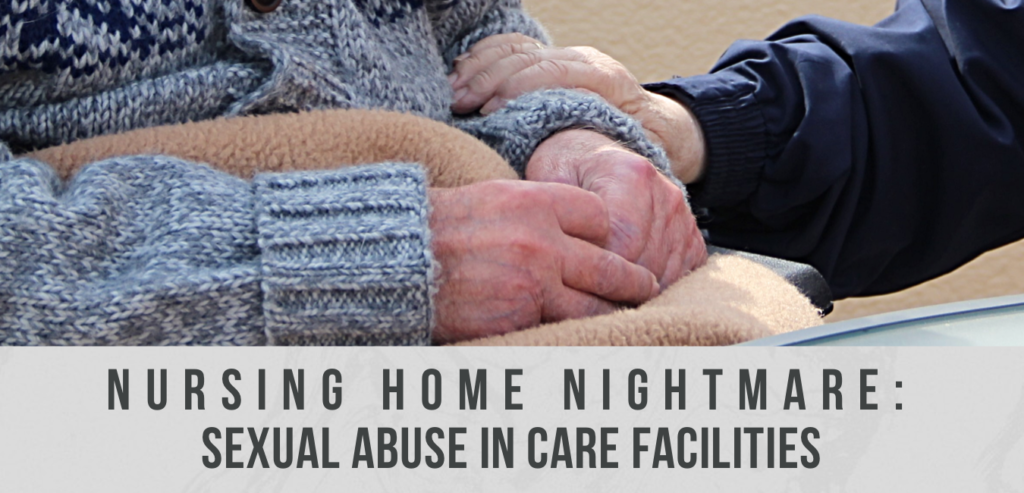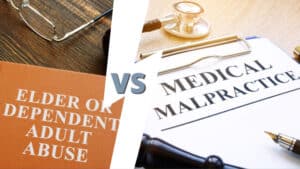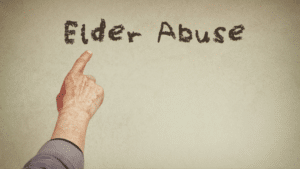Written By Christopher Dolan and Cristina Garcia
This week’s question comes from David K. in San Francisco:
My older sister, Lucy, is forty-one years old and suffers from physical and mental impairments. She uses a wheelchair and has trouble communicating. A couple of years ago, my parents and I made the tough decision to place her in a nursing home, as my parents could no longer care for her. We researched the facility, and it appeared to be a well-equipped facility for my sister’s needs. I would visit my sister on the weekends. I observed a male resident who seemed friendly and often engaged in conversation with Lucy during my visits. At the time, I thought it was nice for Lucy to have a friend in the facility. However, this all changed during one of my visits when I found this male resident in her room. They were by themselves, and he was lying in bed with her, which I found completely inappropriate. I immediately asked him to leave. I then spoke to one of the nurses and notified her of the incident. She apologized and assured me it wouldn’t happen again. Lucy’s nurse also stated that this male resident had exhibited inappropriate sexual behavior to other female residents. When I heard this, I was utterly disgusted. I have seen news stories about health providers who have sexually or physically abused residents. However, I am not sure what to do in this situation as the person abusing Lucy was another resident. Can the facility be held accountable for the other resident’s behavior, as they previously knew about his sexual tendencies?
David, it is terrible that you and your family had to go through this experience. As you mentioned, many news stories discuss physical or sexual abuse by health providers. However, it is the nursing home’s responsibility to ensure the safety of all residents, not only from health providers but also from other residents.
Under the Elder and Dependent Adult Civil Protection Act (“EADACPA”), codified as Welfare and Institutions Code Section 15600 et sec. A “Dependent Adult” is defined as “any person between the ages of 18 and 64 who resides in this state and who has physical or mental limitations that restrict his or her ability to carry out normal activities or to protect his or her rights, including, but not limited to, persons who have physical or developmental disabilities, or who physical or mental abilities have diminished because of age.” Cal. Welf. & Inst. Code § 15610.23(a). The law further defines “dependent adult” to include any person between the ages of 18 and 64 years who is admitted as an inpatient to a 24-hour health facility. Cal. Welf. & Inst. Code § 15610.23(b).
Based on the information you have provided, it appears that Lucy is a dependent adult who relied on the nursing home staff to protect her from harm. Under Cal. Welf. & Inst. Code Section 15610.57, “Neglect” includes the “failure to protect from health and safety hazards.”
Furthermore, “Abuse” is defined as “the negligent failure of any person having the care or custody of an elder or a dependent adult to exercise that degree of care that a reasonable person in a like position would exercise.” The nursing facility was negligent in the care of Lucy because they failed to protect her from health and safety hazards. Despite having knowledge that the male resident had sexual tendencies, the facility did not properly monitor the resident and allowed him to continue interacting with female residents without supervision. In addition, the facility’s conduct would fall under “abuse” as defined by the EADACPA because a reasonable person in a like position would not allow the male resident to interact with Lucy without supervision and should not have allowed them to be alone in her room. Once the facility became aware of the sexual tendencies of the male resident, they should have taken precautionary measures, including monitoring his behavior and whereabouts to ensure he was not left alone with other residents he could harm.










